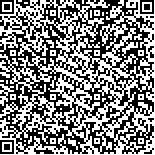| 摘要: |
| [摘要] 目的 探讨人工耳蜗植入术后听觉言语能力的影响因素。方法 回顾性分析2011-07~2016-06施行人工耳蜗植入术的74例(75耳)患者的临床资料,应用听觉行为分级标准(CAP)和言语可懂度分级标准(SIR)对患者进行疗效评估,分析植入年龄、植入时间、脑白质异常、内耳畸形、基因突变对康复效果的影响。结果 1~4岁组CAP、SIR分级评分优于5~17岁组及≥18岁组(P<0.05)。6~12个月组CAP、SIR分级评分低于13~24个月组及>24个月组(P<0.05)。脑白质异常、基因突变对CAP、SIR分级无显著影响(P>0.05)。结论 植入年龄和植入时间对言语康复效果有显著影响。脑白质异常对术后康复疗效无显著影响,基因突变表型对其听觉言语能力的影响有待后续研究证实。 |
| 关键词: 人工耳蜗植入术 临床分析 康复 基因突变 |
| DOI:10.3969/j.issn.1674-3806.2019.09.05 |
| 分类号:R 764 |
| 基金项目:国家自然科学基金资助项目(编号:81960186);广西科技厅重点研发项目(编号:桂科AB17292089,桂科AB1850010);广西自然科学基金资助项目(编号:2017GXNSFAA198013);广西医疗卫生适宜技术开发与推广应用项目(编号:S2017078,S2018039);广西卫健委科研课题(编号:Z20170366) |
|
| Clinical analysis of 74 cases of cochlear implantation |
|
ZHOU Kai, XU Liang, HUANG Lan-cheng, et al.
|
|
Department of Otorhinolaryngology-Head and Neck, the People′s Hospital of Guangxi Zhuang Autonomous Region, Nanning 530021, China
|
| Abstract: |
| [Abstract] Objective To explore the effect of cochlear implantation on auditory and speech performances. Methods The clinical data of 74 cases(75 ears)of cochlear implantation from July 2011 to June 2016 were retrospectively analyzed. The categories of auditory performance(CAP) and speech intelligibility rating(SIR) were used to evaluate the patients′ auditory and speech performances. The effects of the age of the implanted patients, implantation time, cerebral white matter abnormality, inner ear malformation and genetic mutation on auditory and speech rehabilitation were analyzed. Results The CAP and SIR grading scores of the 1~4 year old group were better than those of the 5~17 year old group and ≥18 year old group(P<0.05), and the CAP and SIR grading scores of the 6~12 months group were lower than those of the 13~24 months group and >24 months group(P<0.05). Cerebral white matter abnormality and gene mutation had no significant effect on CAP and SIR grading(P>0.05). Conclusion Age of the implanted patients and implantation time have obvious influence on the speech rehabilitation. Cerebral white matter abnormalities have no significant effects on postoperative rehabilitation. The effects of gene mutation phenotypes on auditory and speech performances need to be confirmed by follow-up studies. |
| Key words: Cochlear implantation Clinical analysis Rehabilitation Genetic mutation |

